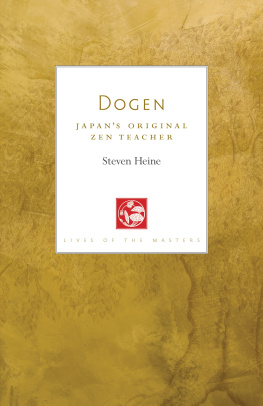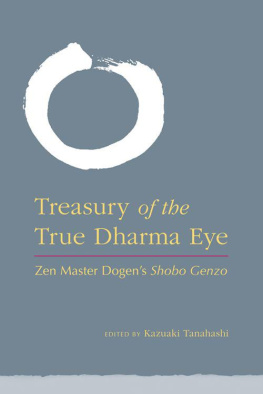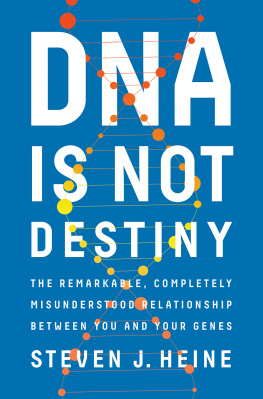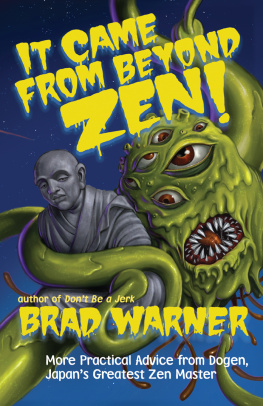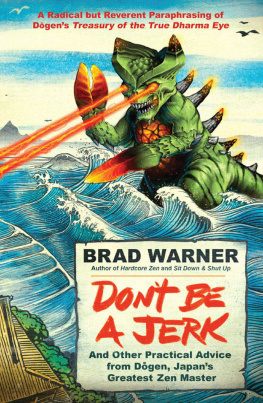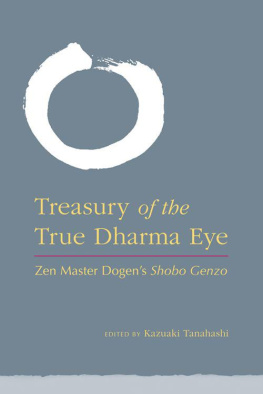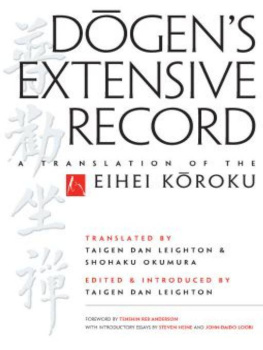Steven Heine - Readings of Dōgens Treasury of the True Dharma Eye
Here you can read online Steven Heine - Readings of Dōgens Treasury of the True Dharma Eye full text of the book (entire story) in english for free. Download pdf and epub, get meaning, cover and reviews about this ebook. year: 2020, publisher: Columbia University Press, genre: Religion. Description of the work, (preface) as well as reviews are available. Best literature library LitArk.com created for fans of good reading and offers a wide selection of genres:
Romance novel
Science fiction
Adventure
Detective
Science
History
Home and family
Prose
Art
Politics
Computer
Non-fiction
Religion
Business
Children
Humor
Choose a favorite category and find really read worthwhile books. Enjoy immersion in the world of imagination, feel the emotions of the characters or learn something new for yourself, make an fascinating discovery.

- Book:Readings of Dōgens Treasury of the True Dharma Eye
- Author:
- Publisher:Columbia University Press
- Genre:
- Year:2020
- Rating:5 / 5
- Favourites:Add to favourites
- Your mark:
- 100
- 1
- 2
- 3
- 4
- 5
Readings of Dōgens Treasury of the True Dharma Eye: summary, description and annotation
We offer to read an annotation, description, summary or preface (depends on what the author of the book "Readings of Dōgens Treasury of the True Dharma Eye" wrote himself). If you haven't found the necessary information about the book — write in the comments, we will try to find it.
Readings of Dōgens Treasury of the True Dharma Eye — read online for free the complete book (whole text) full work
Below is the text of the book, divided by pages. System saving the place of the last page read, allows you to conveniently read the book "Readings of Dōgens Treasury of the True Dharma Eye" online for free, without having to search again every time where you left off. Put a bookmark, and you can go to the page where you finished reading at any time.
Font size:
Interval:
Bookmark:
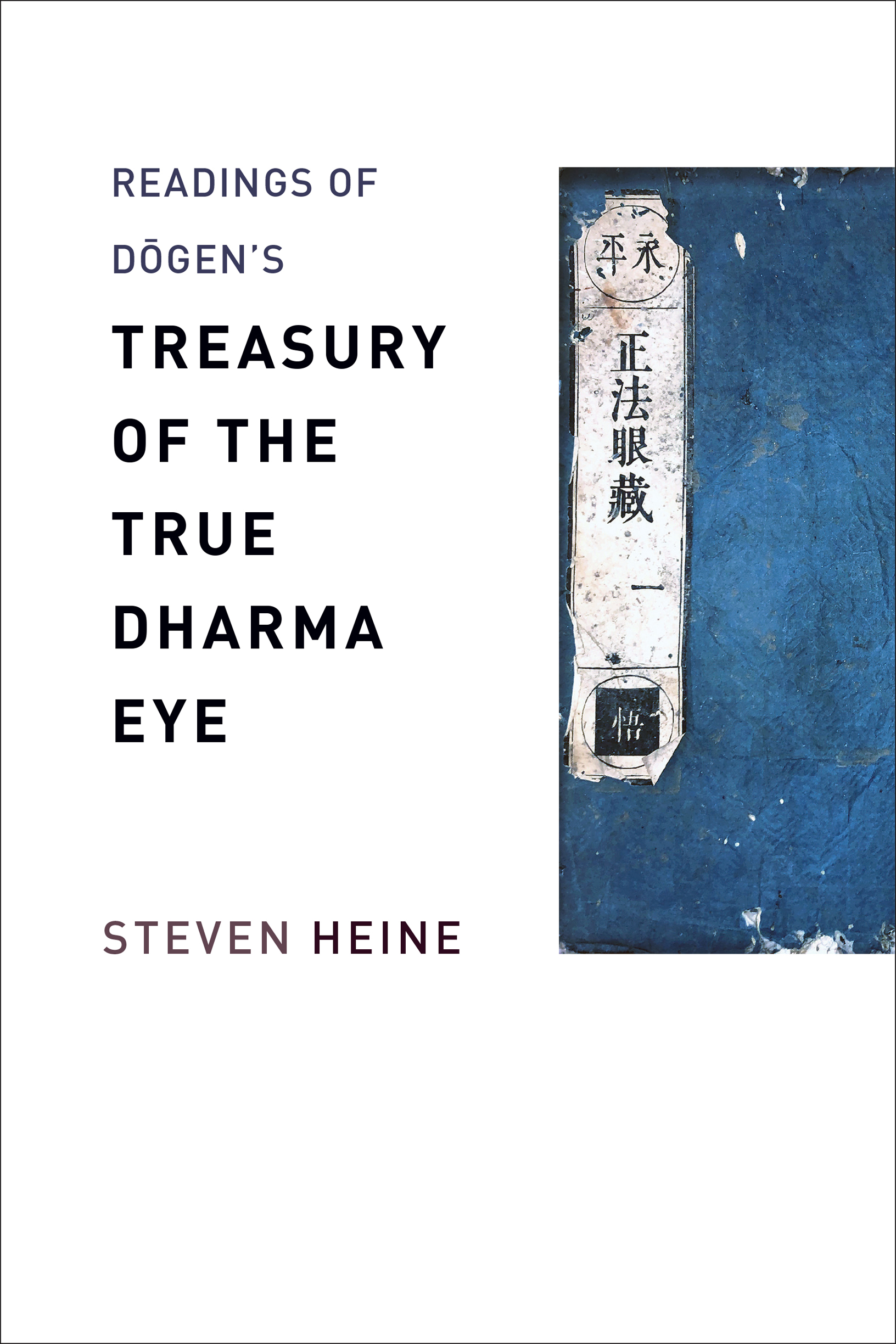
READINGS OF DGENS TREASURY OF THE TRUE DHARMA EYE
COLUMBIA READINGS OF BUDDHIST LITERATURE
COLUMBIA READINGS OF BUDDHIST LITERATURE
SERIES EDITOR: STEPHEN F. TEISER
This series is published with the sponsorship of the Dharma Drum Foundation for Humanities and Social Science Research.
Readings of the Lotus Stra, Stephen F. Teiser and Jacqueline I. Stone, editors
Readings of the Platform Stra, Morten Schltter and Stephen F. Teiser, editors
Readings of the Vessantara Jtaka, Steven Collins, editor
Readings of ntidevas Guide to Bodhisattva Practice, Jonathan C. Gold and Douglas S. Duckworth, editors
READINGS OF DGENS TREASURY OF THE TRUE DHARMA EYE
Steven Heine
COLUMBIA UNIVERSITY PRESS NEW YORK

Columbia University Press
Publishers Since 1893
New York Chichester, West Sussex
cup.columbia.edu
Copyright 2020 Columbia University Press
All rights reserved
E-ISBN 978-0-231-54408-5
Library of Congress Cataloging-in-Publication Data
Names: Heine, Steven, 1950- author.
Title: Readings of Dgen's Treasury of the true dharma eye / Steven Heine.
Description: New York : Columbia University Press, [2020] | Series: Columbia readings of Buddhist literature | Includes bibliographical references and index.
Identifiers: LCCN 2019042597 (print) | LCCN 2019042598 (ebook) | ISBN 9780231182287 (cloth) | ISBN 9780231182294 (paperback)
Subjects: LCSH: Dgen, 1200-1253. | Dgen, 1200-1253. Shb genz.
Classification: LCC BQ9449.D657 H46 2020 (print) | LCC BQ9449.D657 (ebook) | DDC 294.3/85dc23
LC record available at https://lccn.loc.gov/2019042597
LC ebook record available at https://lccn.loc.gov/2019042598
A Columbia University Press E-book.
CUP would be pleased to hear about your reading experience with this e-book at .
Cover image: Detail of cover page of a manuscript in a rare woodblock edition of the Treasury, c. 1800
. Treasury cover
. Treasury text
. A Treasury sermon at Lord Hatanos residence
. View of awakening
. Spiritual transformation
. Reality
. Dgens view of kans and satori
. Dignified demeanor
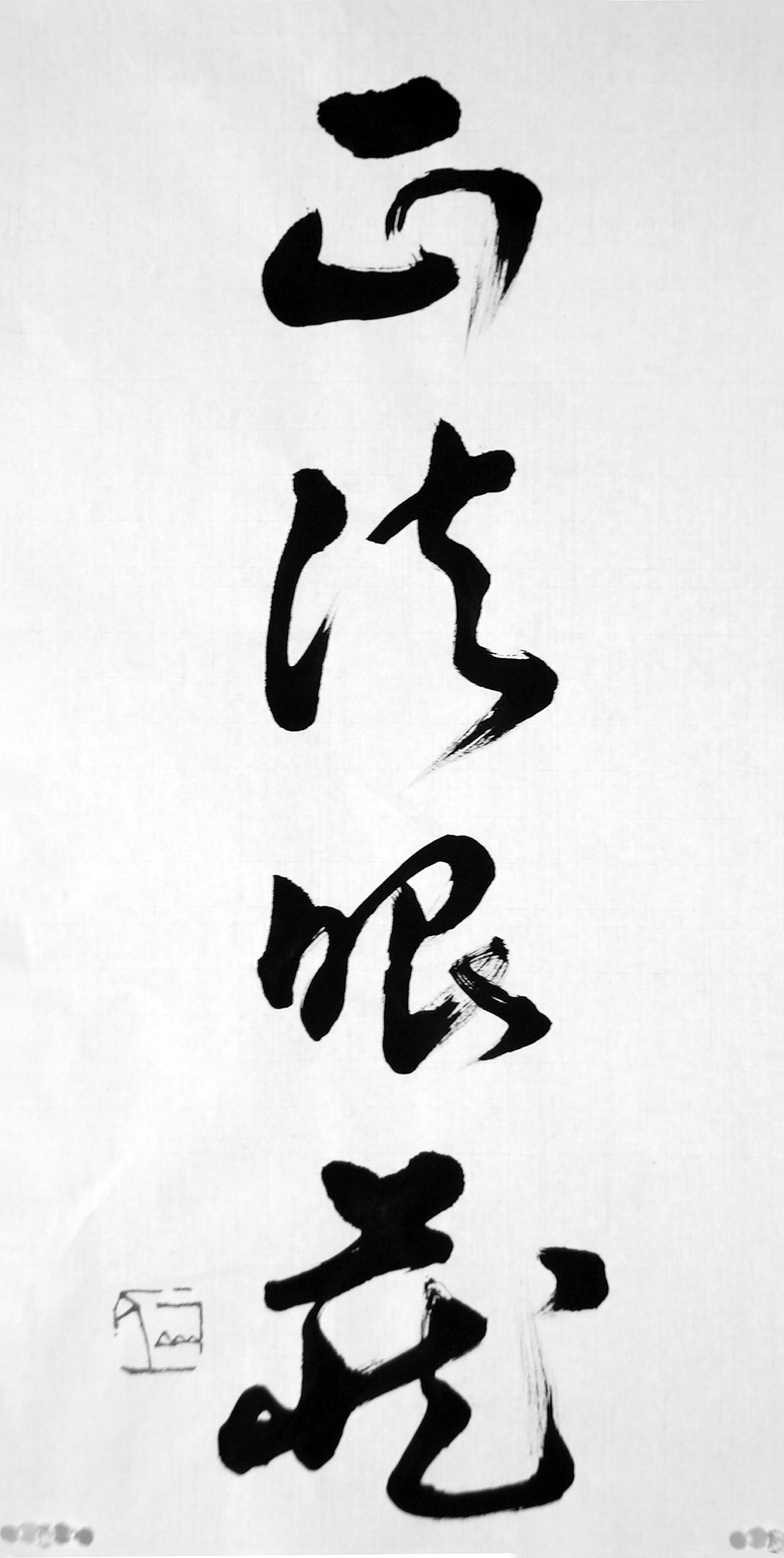
Calligraphy for the title, Treasury of the True Dharma-Eye (Shbgenz), by Kazuaki Tanahashi
T he Treasury of the True Dharma eye (Shbgenz , hereafter Treasury) was written by the master Dgen (12001253) during the first half of the thirteenth century as a guidebook for his growing assembly of monks, who were studying meditation at the time of the emergence of the St Zen institution as a major component of religion in medieval Japan. Dgens text has long been recognized as a masterpiece of traditional East Asian Buddhist literature for combining in thought-provoking ways Chinese sources he studied during a pilgrimage to the continent with Japanese grammatical constructions. Since being introduced to the English-speaking world about a half-century ago, the Treasury has been gaining increasing international acclaim for its innovative approach to expressing the Zen view of spiritual awakening. The past few decades have seen an impressive flow of translations and scholarly studies produced by specialists and comparative scholars, in addition to numerous publications geared primarily to the interests of Zen practitioners.
It seems clear that the Treasury is now appreciated perhaps as much as any other single work in the history of Buddhism. However, despite this widespread attention and acclaim, the Treasury remains particularly difficult to comprehend and is subject to diverse and sometimes conflicting interpretations. One of the main translators, Gud Wafu Nishijima, confesses in Understanding the Shbgenz, The first time that I picked up a copy of the Shbgenz, I found that I could not understand any of it, although I was reading a book written in my own native language. This is a common reaction, he points out, because Dgen wrote using many phrases and quotations from Chinese Buddhism which are relatively unknown to the layman, and difficult to render into other languages.
In light of the intertwined attitudes of exhilaration and frustration that many new readers may feel in approaching the Treasury for the first time, my aim is to clarify the complexity of Dgens writing by dealing with several main issues. First, this book explores the religious and cultural context, as well as the personal striving and aspiration, that led Dgen to compose the Treasury, which was edited by the author and prominent followers. Second, it explains the basis for Dgens use of inventive rhetorical flourishes in disclosing the foundation of contemplative experience. Third, it aims to elucidate the various versions and editions that have been constructed over the centuries by monks of the St Zen sect in terms of how these have been analyzed by premodern and modern commentators. Fourth, the book explicates the philosophical implications of Dgens views on attaining and sustaining enlightenment by evaluating the role of meditation and other forms of monastic discipline in terms of the relation between Zen practice and societal concerns.
Readings of Dgens Treasury of the True Dharma Eye contains two main divisions. The first section, consisting of three chapters, discusses the historical background and intellectual significance of the Treasury, especially involving the connections between different manuscripts that were not fully completed at the time of the masters death and are still very much debated and disputed by scholars today. The second section considers five main thematic topics that form the basis of Dgens approach to Zen theory and training, including the meaning of reality or Buddha nature, the impact of temporality and impermanence, the role of expressivity and language, deliberations on reflexivity and meditation, and the moral consequences of karmic causality. In addition, there are several supplementary sections, including a brief review in appendix IV of current complete translations.
Although numerous translations are available in English and other languages, it is fair to say that there is as yet no definitive rendition and that creating such a work is an elusive goal, given the incredible degree of intricacy and ambiguity embedded in Dgens compositions. Therefore, in consultation with the editors at Columbia University Press, I have decided to use my own translations from the following source: Dgen Zenji zensh (Dgens Collected Works), edited by Kawamura Kd , et al. (Tokyo: Shunjsha, 19881993), vols. 1 and 2 (of 7 vols.); this will be referred to in parentheses as Dgen, with volume and page number provided. In the bibliography there are a couple of other Japanese compilations edited by kubo Dsh with the same title.
Since my translations contain brief passages culled from a much longer text, for each translated passage I reference four bits of information:
a)the romanized version of the Japanese title of that fascicle (see appendix I for a list of all the fascicles with Japanese in characters and romanization plus my translation of the titles, which may vary from the versions of other translators although the romanization generally does not);
Font size:
Interval:
Bookmark:
Similar books «Readings of Dōgens Treasury of the True Dharma Eye»
Look at similar books to Readings of Dōgens Treasury of the True Dharma Eye. We have selected literature similar in name and meaning in the hope of providing readers with more options to find new, interesting, not yet read works.
Discussion, reviews of the book Readings of Dōgens Treasury of the True Dharma Eye and just readers' own opinions. Leave your comments, write what you think about the work, its meaning or the main characters. Specify what exactly you liked and what you didn't like, and why you think so.

